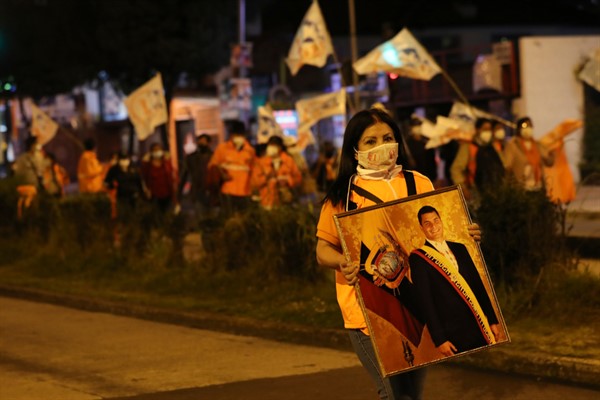Ecuador’s presidential election was supposed to be a competition between a leftist candidate in the mold of exiled former President Rafael Correa, and a traditional, center-right and pro-market alternative. But when the votes were counted after Sunday’s first round, voters had delivered a surprise. Ecuadorians could end up with a choice between two leftists, potentially signaling that the coronavirus pandemic has opened the door to a new “pink tide” in South America.
The final outcome of the vote has not been decided and won’t be until the runoff on April 11. The only certainty is that no candidate earned enough votes on Sunday to win outright. The top vote-getter was Andres Arauz, a 36-year-old former minister in Correa’s Cabinet. But the vote for second place is too close to call, and a recount will be required to determine whose name will be on the runoff against him—either the market-friendly conservative Guillermo Lasso, or the Indigenous environmentalist Yaku Perez, who describes his views as “another left,” in contrast with that of Correa and Arauz.
Victory for Arauz, who took 32 percent of the vote in the first round, would likely mark a victory for Correa, who remains in exile in Belgium, a fugitive from the law after he was sentenced to eight years in prison last year on corruption charges and banned from holding public office again. Correa, who was close to Venezuela’s Hugo Chavez, was one of the socialist leaders swept to power in the pink tide of the early 2000s. Like others in that movement, Correa spent lavishly on social programs, raising living standards for the poor on the strength of surging income from oil exports during a commodities boom. And, like others, he displayed strong authoritarian tendencies, removing term limits and seizing ever more power. Correa’s economic model also collapsed when commodity prices fell, like his leftist peers. Ecuador’s economy was left in shambles, with much of its future oil output mortgaged to China to repay loans.

